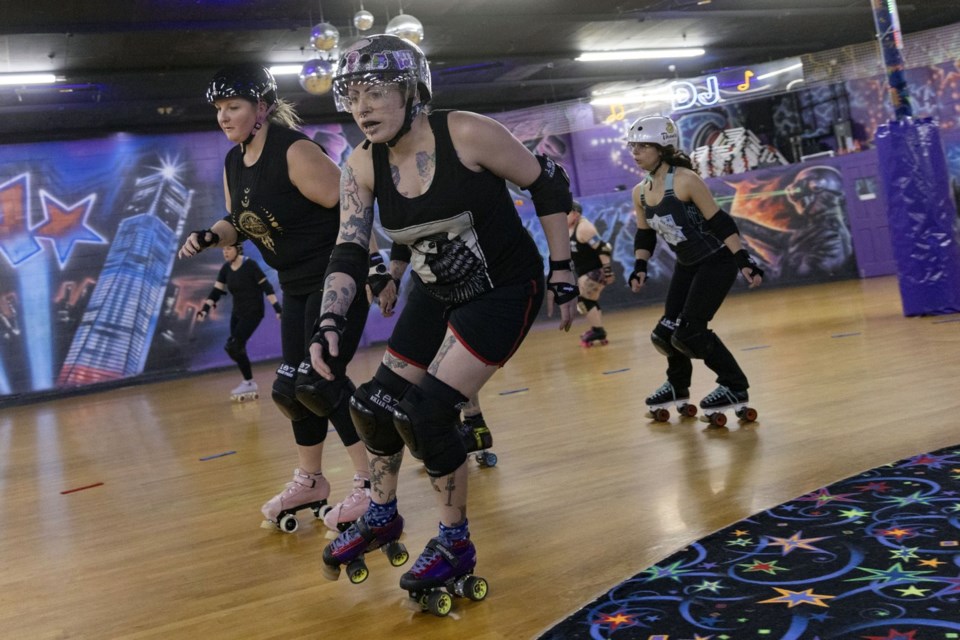ALBANY, N.Y. (AP) — Democrats pushed to get a constitutional amendment on New York's ballot because they believed it could energize liberals eager to protect abortion rights. Republicans are now hoping the same amendment will ignite a fire under people upset about transgender athletes participating in girls' and women's sports.
Voters will decide Nov. 5 whether to approve the state's proposed “Equal Rights Amendment,” which has already been the subject of a court fight over its broad language. The amendment, called “Proposition 1” on the ballot, has emerged as one of the more unusual ideological battles of the 2024 election season, partly because of disagreements about what it will do if passed.
On paper, the proposed amendment would expand a section of the state constitution that now says a person can't be denied civil rights because of their race, creed or religion. The new language will also ban discrimination based on national origin, age, disability, sexual orientation, gender identity, gender expression, pregnancy, pregnancy outcomes or "reproductive healthcare and autonomy."
While much of the news coverage of the amendment has focused on how it might protect abortion rights, Republicans have been running a messaging campaign warning that barring discrimination based on someone's “gender expression” would create a constitutional right for transgender athletes to play on girls’ sports teams.
“The consequences of the state constitution being amended is drastic,” said Lee Zeldin, a Republican former congressman and gubernatorial candidate who is a leading critic of the amendment.
The leading group opposing the amendment, the Coalition to Protect Kids-NY, has held rallies across the state and put out advertisements against the proposal saying banning discrimination based on “national origin” could allow noncitizens to vote, and that the amendment would also take away parents' right to have a say in their child’s medical care.
People who support the amendment argue the group is trying to mislead voters.
State courts have ruled that other parts of the state constitution already bar noncitizens from voting. The New York City Bar Association said nothing about the amendment would wipe out existing state laws requiring parental consent for a child’s medical care.
“They’re really looking to distract, to divide, to change the subject,” said Jennifer Weiss-Wolf, executive director of the Birnbaum Women’s Leadership Center at NYU School of Law. “I think New Yorkers will be able to see through that.”
Backers of the proposed amendment say it is true that a constitutional ban on discrimination based on someone's “gender identity” would benefit transgender people, including trans athletes, though not in the dramatic way suggested by opponents.
State law already offers similar antidiscrimination protections to all public school students, said Katharine Bodde, interim co-director of policy at the New York Civil Liberties Union. Under those laws, she said, transgender people already have a right to play on sports teams that match their gender identity, she argued. But those protections would become codified into the state constitution, making it harder for a future legislature to change the law.
“Opponents fear-mongering about the small handful of students already participating in sports is dangerous and bullying of a vulnerable population of kids,” Bodde told The Associated Press.
The state's most populous county outside New York City recently enacted legislation banning teams with transgender athletes from using any county facilities, unless the team is designated as co-ed.
A court battle is underway over whether that Nassau County ban violates existing state law. New York's attorney general said it does.
Attorneys for the county argued in a court filing that the ban isn't discriminatory because it doesn't exclude transgender women and girls from sports, but rather requires them to play in a co-ed league “with those of their same physical ability, strength, speed, force, so as not to dominate women’s sports.”
It is also plausible that the amendment, if passed, would become a factor if New York lawmakers ever decided to join the that have passed laws restricting or banning gender-affirming medical care for transgender minors. Supporters of the amendment said it would prohibit discriminatory bans on medical care. in its new term on whether such bans enacted elsewhere are unconstitutional or violate federal law.
On abortion, there has already been some debate in the courts about what Proposition 1 will and won't do.
Democrats in the state legislature voted to put the amendment on the 2024 ballot after the U.S. Supreme Court overturned Roe v. Wade.
Backers of the amendment say that while its language doesn't explicitly enshrine the right to terminate a pregnancy, it would create a legal framework under which future restrictions on abortion would be interpreted by courts as an unconstitutional form of discrimination.
In a recent ruling, however, one state judge noted that its actual impact wasn't so clear-cut.
Judge David A. Weinstein turned down a request that written material be given to voters at polling places saying the amendment would protect abortion rights, in part because of its nonspecific language. He predicted it would be the subject of future legal wrangling.
“I lack the requisite crystal ball to predict how the proposed amendment will be interpreted in particular contexts," he wrote.
New York state law currently allows access to abortion until fetal viability, which is usually between 24 and 26 weeks.
Nevada voters in 2022 approved similar constitutional language to bar discrimination “regardless of race, color, creed, sex, sexual orientation, gender identity or expression, age, disability, ancestry, or national origin.”
That amendment was then cited in a lawsuit that struck down a state ban on Medicaid coverage for abortion services, with a court ruling the policy violated the amendment's provision on sex discrimination.
Anthony Izaguirre, The Associated Press




